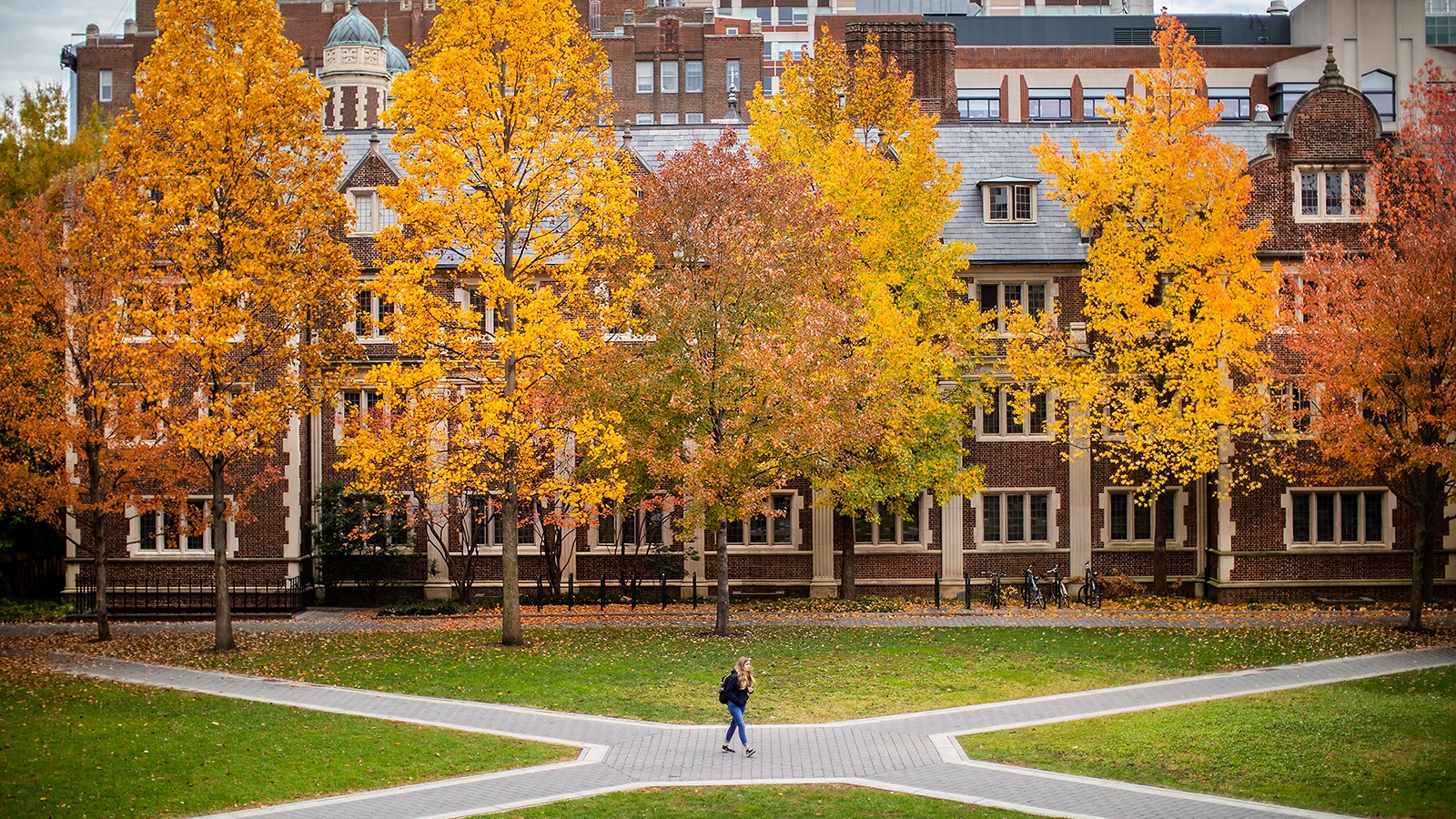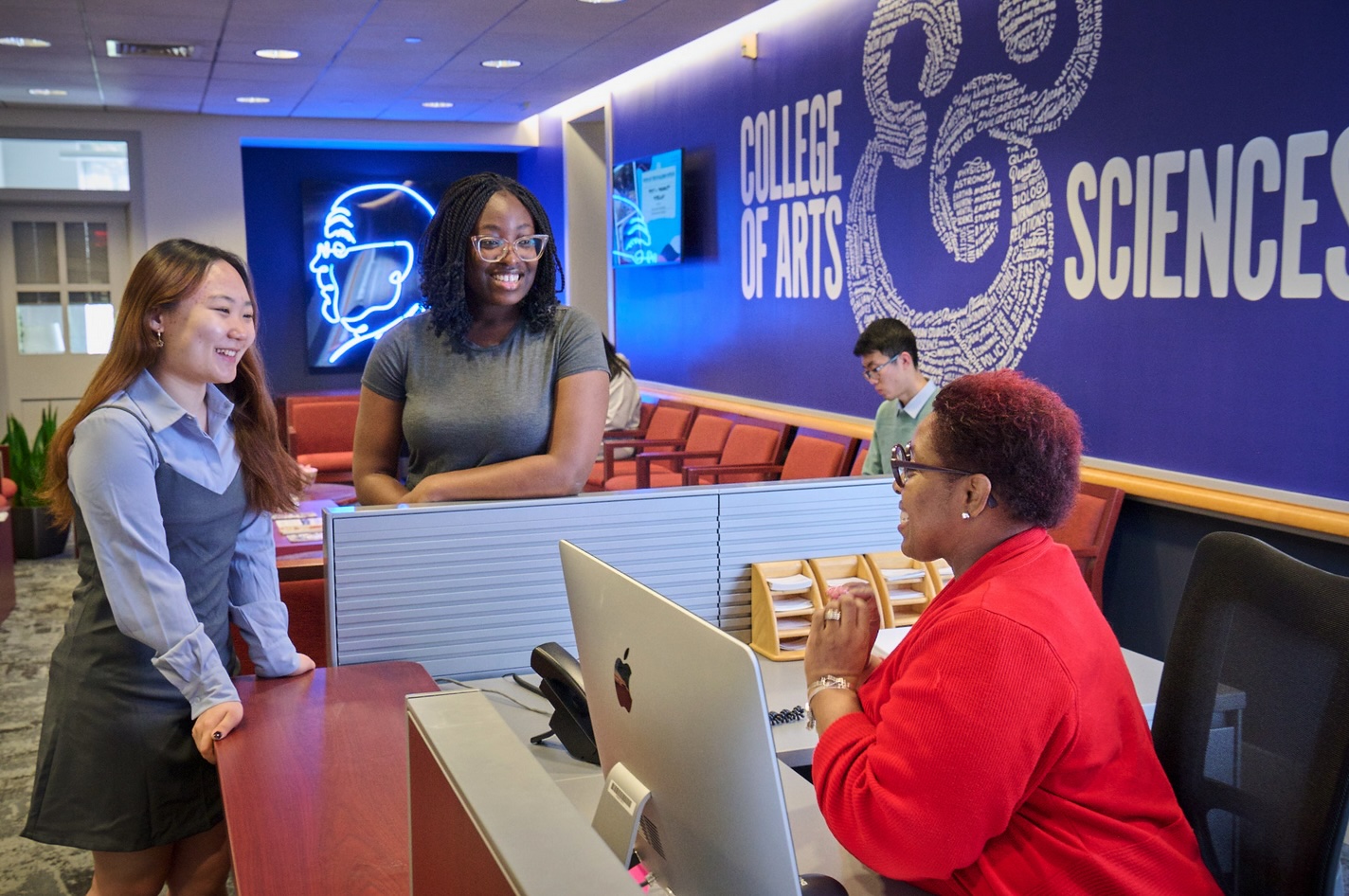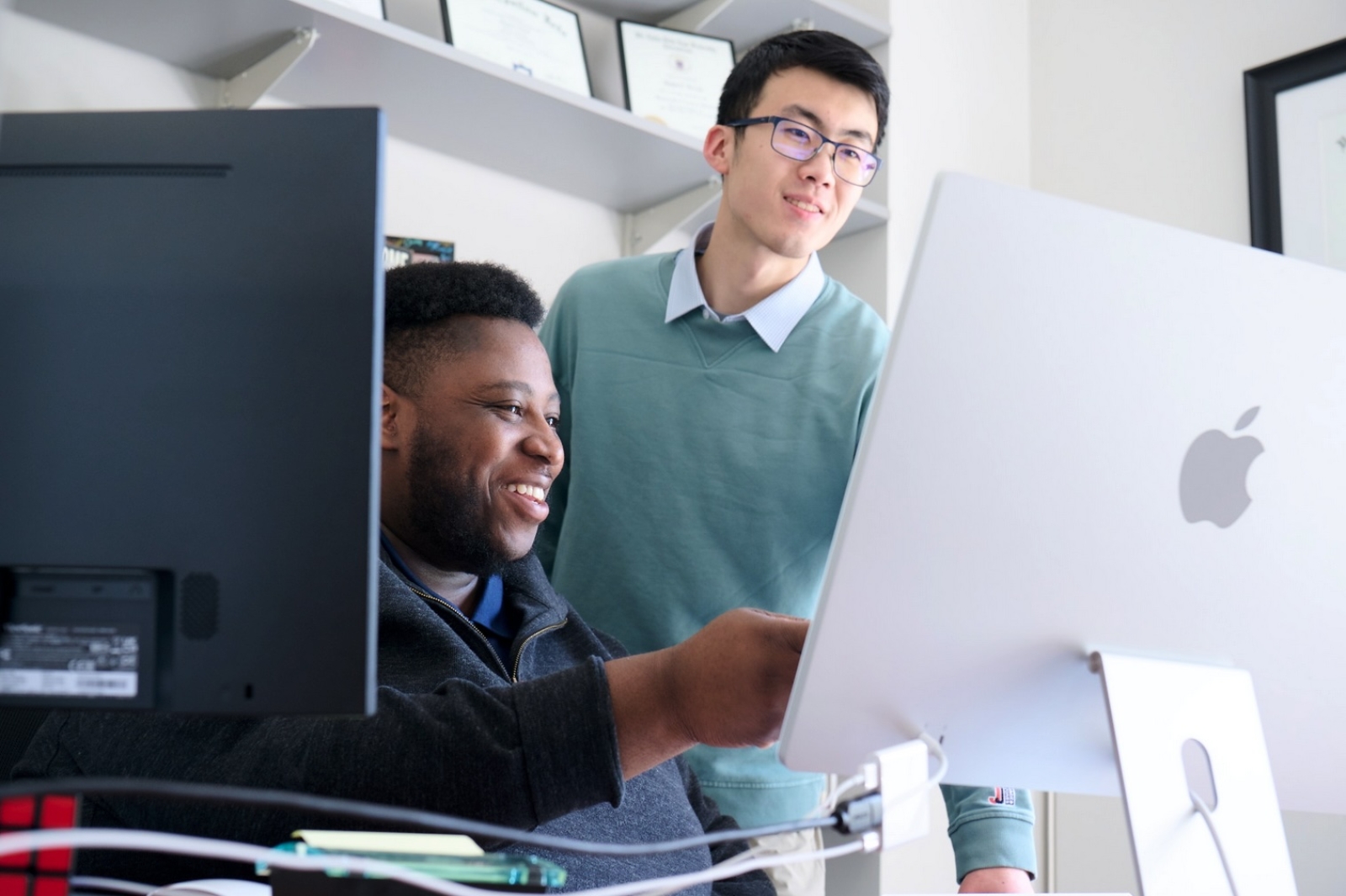A Sounding Board for First- and Second-Years
The College’s pre-major advising program has been around since the 1990s. The 130 or so faculty and staff who participate act as a support system and academic guide for undergrads learning to navigate the experiences and spaces of Penn.

When Adam Sherr, C’90, GED’00, was a Penn undergraduate, he changed his major three times. “I didn’t know what I wanted to do with my life,” he says. “I did a lot of ‘self-advising’ because I wasn’t forced or guided to seek out the advising the College had at the time.”
Today, Sherr is director of crossfunctional training and a senior application data analyst for Penn’s Office of the University Registrar. He’s also a pre-major advisor for the College of Arts & Sciences, one of 130 or so faculty and staff who act as sounding board and academic guide for first-years and sophomores, a support system not just for their initial few weeks on campus, but for their first two years.
The pre-major advising program, which has been around since the early 1990s, started as a way to ensure that students new to university life didn’t get swallowed up by unfamiliar processes and places. In its nearly three decades, it has evolved far beyond help with course selection. “It’s not transactional,” says Carolyn Ureña, Director of Academic Advising for the College. “We encourage exploration. We want to make sure they understand we see them as whole people.”
The Match
A matching process takes place long before the students set foot on campus. The previous February, faculty and staff are recruited to the program based on recommendations from the School of Arts & Sciences deans and department chairs. Their first year of participation and every year thereafter, they fill out a survey, answering questions about places they’ve called home, their interests, what languages they speak—information used to make the optimal advisor-advisee match.

(Image: Courtesy College of Arts & Sciences)
Ureña, for example, includes on hers that her family is from the Dominican Republic, she speaks seven languages, and loves gardening and meditation and the reggaeton artist Bad Bunny. Sherr graduated from Philadelphia public schools and is Penn Band’s Assistant Director. He also has a daughter who was a competitive athlete. “I often match on interests other than academics,” Sherr says. “I ask for first-generation students because I like the perspective they bring. And I will often get athletes because of my daughter. I like talking to student athletes.”
Generally, advisors have no more than 10 students at once, but this year—something like his 12th or 13th as a pre-major advisor—Deven Patel, Associate Professor of South Asia Studies, has 20 students. He says he doesn’t mind.
“Once you get into the academics, you’re relating to them on the level of professor-student; you don’t get access to their lives and their world,” Patel says. “Being a pre-major advisor means we really get to know students, what the generational energy is, their lives and their interests. You learn a lot. It’s a really good exercise for becoming a better teacher.”
No advisor goes in unprepared, Ureña adds. “We’re intentional about the kind of education we’re providing them.” At three general meetings each semester, they receive information about key deadlines and advice about the types of conversations they might have with students. They learn about technology changes and about different resources on campus.
“Everything we do in College advising is about building and maintaining relationships,” Ureña says. “The work we do is better if we know each other and if we’re able to show that care to our students and to each other. We want to empower students to access their agency.”
The Advising
Though each advisor approaches these relationships differently, the end goal is the same: to act as a support system for these undergrads before—as the name suggests—they’ve declared a major. Students fill out a first-year questionnaire the June before they arrive on campus, then the match with an advisor happens in mid-June, followed by initial outreach a little later in the summer.

(Image: Courtesy College of Arts & Sciences)
“In the old days that first communication was always by telephone,” Patel says. “I still prefer telephone.” Sometimes advisees reach out first, but either way, Patel makes sure their earliest interaction includes a lengthy getting-to-know-you conversation and one piece of advice: Go through the entire course catalog and create a list of everything they might want to take. “I want them to feel like there’s an opportunity in these four years to cover a lot of ground,” he says.
Sherr also spends a great deal of time talking about shared interests with his advisees, then shifts gears to topics like course registration for the semester. There are always exceptions, those who already know what classes they want to take and just want someone to check the required box—or, in one memorable case, need help navigating the system to add a class on the final day it could be added.
What’s crucial, Ureña notes, is to build trust. “Then when we get to the challenging parts, about inappropriate placement for a class or trying to get at why someone wants to double major, you’ve already created the conditions for that trust,” she says. “Our students are so ambitious; they want to do everything and there aren’t even 24 hours in a day if you’re going to sleep—and we tell them they need to sleep.”
The Lasting Connection
On paper, students are assigned a pre-major advisor for two years. But the connection to this person rarely ends there, according to Sherr and the others. One of his favorite parts of this role is staying involved with his advisees when he can and watching them walk across the stage at Commencement.
“At the end, during their senior year, when they send you an email and say thank you for your help, that makes all the difference,” says Sherr, who even keeps in touch with some alums who he advised when they started at Penn.
“It’s a wonderful program. We feel like we’re part of the functioning of the university at its most elemental level,” Patel adds. “It’s not that we’re functioning just within a department or a school or that we’re only helping with one sector of their lives, the academic part. It feels truly like the core experience of being an educator.”
It’s something Sherr says he wishes he had available to him as an undergraduate, someone to remind him it was OK to change his major three times, to experience all the University had to offer, and to gently guide him on his way.


